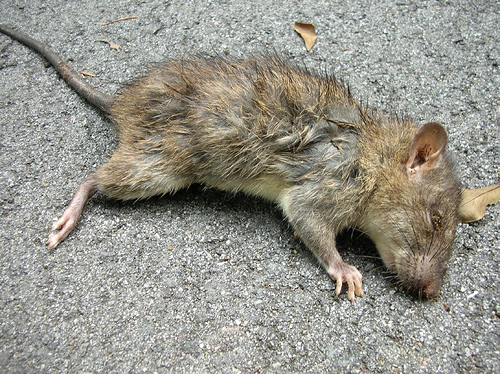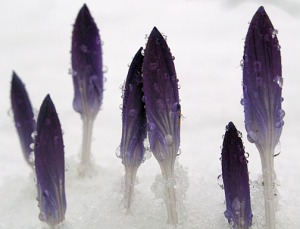The three best things that happened to me yesterday happened before 6:30am: 1) a line in a poem that wouldn’t come right seemed like it would; 2) I thought of a way to return to a writing project that I keep abandoning; and 3) my 4-year old son walked into the kitchen in his penguin pajamas with his armload of sleeping paraphenalia and said, “Hello there, my friend.”
The Dangers of Self-Care
Last night I was on a panel about self-care, talking about therapeutic writing. Luckily two other smart, insightful people with useful things to say were on the panel too, because the idea of self-care seems like a big load of nonsense to me. I like the idea of being kind to ourselves, but take a good look around folks, and ask yourselves if what we could all stand is a tad more self-regulation.
What I am against in particular about the marketing of “self-care” is that it always seems to involve flowers and bathing in candlelight. The message is that, done properly, “self-care” is supposed to magically make you happier, calmer, more comfortable, and most importantly, a better person.

Time to Come Back
Hello and a joyful spring to any and all who still have even a thread of interest in this blog. I’ve been gone for a long, long time, but think of you often. I hope you will forgive the absence.
 Is it spring where you are? Maple trees are budding here, crocuses and daffodils are blooming and I saw my first real dogwood yesterday, making a sparse but valiant showing.
Is it spring where you are? Maple trees are budding here, crocuses and daffodils are blooming and I saw my first real dogwood yesterday, making a sparse but valiant showing.
If you listen to pop radio, you may be hearing Kelly Clarkson’s, “Stronger (What Doesn’t Kill You)” and even if you don’t listen to pop radio, you know the expression “What doesn’t kill you makes you stronger.” This is a good song to work out to; it is not, on any level, a good belief to live by.
Something that can kill you but doesn’t actually makes you weaker. A broken bone is weaker even after the regrowth; past injuries leave scar tissue and must be treated tenderly so as not to reopen or reaggravate wounds. Catastrophic illness makes you more susceptible to infection. Deep psychological pain, even though it can be and is survivable, does not ever truly leave your psyche. You are not made stronger.
This is good news.
Weakness terrifies all of us, but it is, without question what makes us most human, more tender, more vulnerable. My friend Ann says (I’m paraphrasing), “You’ve joined the club. It’s a weird club.”
My friend Mary tells me, after visiting a dying friend, “There is so much pain in the world. The most we have is leaning on each other.”
Mary’s heart is so open that when I am with her sometimes I feel like I am standing in it. Her tolerance for other people’s pain is a tangible, living thing.
Yesterday was Palm Sunday. Jesus rides into Jerusalem on a donkey flanked by illiterate fisherman. He was not stronger than the army of soldiers who greeted him. I’m struck again and again at how the language of the Gospels is filled with words like “passion,” “desire,” and “longing.” When do we lose this connection (if in fact we do lose it?) When do we forget that the ache, the suffering, the longing for respite in the face of tremendous suffering…the blood and body passion for life is everything that brings us closer to others, to God?
army of soldiers who greeted him. I’m struck again and again at how the language of the Gospels is filled with words like “passion,” “desire,” and “longing.” When do we lose this connection (if in fact we do lose it?) When do we forget that the ache, the suffering, the longing for respite in the face of tremendous suffering…the blood and body passion for life is everything that brings us closer to others, to God?
This is not original thinking; none of this is. But today I am having lunch with two dear friends, one who has survived colon cancer, and is now celebrating her last round of chemo for pancreatic cancer, and another who is living with the constant sorrow of losing her brother. And we will be laughing, joyful. Whatever pain each of us is carrying will be shared, even for a moment, even if we don’t talk about any of it. We don’t have to. We’re in the club.
Carrie Newcomer sings about living a “permeable life.” Go and listen to her remind you that “there is room at the table for everyone.” Or perhaps read some Parker Palmer, especially the poignant and lovely, “Let Your Life Speak.”
Or maybe, best of all, go and find yourself one of those people in your life who’s part of your tribe. One of the weirdos who makes you feel less alone on the planet. Preferably someone who really makes you laugh. I’ve been making myself walk as often as I can lately (venturing outdoors, especially to do physical activity is an effort at the best of times, but it is a sacrilege to admit that because it is spring and one is supposed to love venturing outdoors.) But because we here in the Midwest haven’t seen the sun for about 6 months, and because I know I will feel hugely better if I walk, I do it.
And many people are coming out of their homes, blinking at the sunlight as if released from cave dwellings. I enjoy seeing this. As I was walking last week, an elderly woman on an enormous elderly person’s bike with huge tires rode past me, very slowly. She was smiling. She gave me a little first pump as she drifted by. “Good weather!” she shouted, in her elderly lady voice.
It made me happy that our paths crossed, so to speak, at that moment. But earlier in the day, something made me laugh, really hard. I’d recently been visiting my parents in Naples, FL, and they took my 8-year old son and me to the Everglades. I hate the Everglades. I hate strong sun and humidity. I hate tourists. I hate snakes, especially 20-foot pythons, and no, I do not wish to feel the python skin on display during the python naturalist talk. I hate alligators and alligators are everywhere in the Everglades, as bold and ugly as can be. People talk to them like they are cute little pets. They are not.
As I was recounting being in the Everglades to an acquaintance (by recounting I mean to say telling him that he should never, ever go to the Everglades because it is ugly and dangerous), he said, “Well, to me the whole point of becoming educated was so that I wouldn’t have to go outside.”
In that moment, I had met a member of my tribe. I laughed all day. It was breath. It was life. It was spring.
With much love and gratitude,
LC
To a Snake (by Jeffrey Harrison)
I knew you were not poisonous
when I saw you in the side garden;
even your name—milk snake—
sounds harmless, and yet your pattern
of copper splotches outlined in black
frightened me, and the way you were
curled in loops; and it offended me
that you were so close to the house
and clearly living underneath it
if not inside, in the cellar, where I
have found your torn shed skins.
You must have been frightened too
when I caught you in the webbing
of the lacrosse stick and flung you
into the woods, where you landed
dangling from a vine-covered branch,
shamelessly twisted. Now I
am the one who is ashamed, unable
to untangle my feelings,
braided into my DNA or buried
deep in the part of my brain
that is most like yours.
Trending Towards Hope
Hello and Happy September everyone! A friend said to me recently that the seasons, particularly the spring (and particularly the rabbits in his yard in the spring), affirm his belief that “life trends towards hope.” I like this idea, though not, perhaps, for the reason my friend does. Seasons are cyclical, and cycles don’t really “trend” towards anything except repeating themselves. So one could suggest that the exuberant hopefulness of spring is not more or less important or meaningful than the still darkness of the winter. And vice versa.

[Note on the art pictured here: it is a photograph of a print by Carol McCrady that I have in my office. It’s called “Medieval Seasons,” and you can see more of her exquisite art on her web site.]
This isn’t a depressing perspective; just a realistic one, and one that I’ve learned a lot about from writers like Parker Palmer and David Whyte. They talk about the danger of human beings’ desire to accept only those parts of ourselves that are light, expansive, “up.” We do a deep disservice to ourselves when we live this way, because we’re making very little internal space for the times when we are not all these things. In the words of the fabulous singer songwriter John Prine, “That’s the way that the world goes round/up one day the next you’re down/it’s a half an inch of water and you think you’re gonna drown/that’s the way that the world goes round.”
I love the line: “it’s a half an inch of water and you think you’re gonna drown” because it’s so ridiculously true. I had to remind myself of this in the last few weeks when our entire university town was going through the transition from summer to fall: no students/no school—> thousands of students/lots of school.
Best Not to Start With the Gestapo
I’ve been thinking a lot about forgiveness lately, not for a noble reason such as the New Year and trying to better myself, but because, like Dustin Hoffman in Rain Man, I’m stuck in this compulsive habit of keeping a little psychic notebook of “offenses against Leslie Srajek,” and it gets longer and longer each day. And I’m not talking about the girl at Panda Express who charges you for “free refills,” or even the bank clerk who–oops!–deposits your paycheck into the wrong account. Also, this is not to say that I have not made my share of mistakes, because I SO have.
But some people have treated me not so well lately. If we were in daycare together, they would need to be in time out for the whole day. Maybe the whole week, with no chocolate Cherrios for snack. However, like the old blues song says (and what the laws of discretion and good taste dictate), the details of all that “‘t’aint nobody’s business but my own.” What does matter to all of us, however, is forgiveness.
Forgiveness mostly sucks, because being angry is SO much easier and less vulnerable. And if you are a drama queen like me, you enjoy clinging on to your own morsel of pain until the whole world sees how wounded and derserving of love and sympathy and healing and worship you are and …Okay, stop that. In the end, it’s like Anne Lamott says: not forgiving someone is like drinking rat poison and waiting for the rat to die. Also, Annie Lamott has a chapter in Traveling Mercies about forgiveness in which she quotes C.S. Lewis in Mere Christianity as saying, “If we really want to learn to how to forgive, perhaps we had better start with something easier than the Gestapo.”

Sweet Honey From Old Failures: A New Year’s Post
Events that seem to be surrounded by expectation confuse me, and trigger that fear that I am a few steps off from everyone else. Not a truthful fear, but a common fear nonetheless, and one the world does little to soothe for any of us. New Year’s Eve is one of those events for me, for a variety of reasons. One is that the only thing that has ever made me willing to stay awake until midnight was childbirth.
Also, social events that last many, many hours, like New Year’s Eve gatherings, are just too much human contact for me. If you are invited to something that starts at 7:00, you’ve got at least 5 and a 1/2 hours to get through, and I can count on 3 fingers the number of people who I could bear to spend that much uninterrupted time with. But I think it’s the resolution issue that confuses me the most: to resolve or not to resolve, that is the question.
Continue reading “Sweet Honey From Old Failures: A New Year’s Post”
All Flowers Keep the Light
Merry Christmas everyone! For folks who have been following this Advent blog, you know that today is the day we have been waiting for. Waiting quite literally, as Advent is a season of waiting for the miracle that is on its way to us (remember that it is from the Latin adventus, and means “coming”)?
For those of you who landed here in search of our annual family holiday letter, welcome! You’re in the right place, and I’m so glad you’re here! Please read along (and maybe even visit some of the previous posts)! Everyone will also find some Srajek family 2010 moments over at: www.srajek.wordpress.com.
The title of today’s post comes from a quotation by Theodore Roethke: “Deep in their roots, all flowers keep the light.” Advent is called “the season of light,” and writing this blog [one post and one poem (not by me!) for each day of Advent] has, from the beginning, been a way to draw attention away from the typical experience of winter darkness, and towards the light, whatever form that light may take.

Getting What You Want & Wanting What You Get
Earlier this year, when I was writing my Lenten blog, I described a practice that some members of my family have been following this year (it’s in the post called “Nice Things Men Do“). Basically, my dad came up with this idea for my mom that they would each do two acts of kindness for the other person on alternating months. So my dad would take one month, my mom the next month, etc., and there were various rules and stipulations, like you couldn’t combine a birthday or anniversary gift with an act of kindness, etc. Martin and I liked this idea a lot so we decided to do it too.
I so very dearly wish that I had the freedom to provide the specific, juicy details on how this all worked out, but I definitely don’t. What I can tell you is that I’ve been observing how the experience unfolded over the year, and one line from the Carrie Newcomer song, “When One Door Closes,” summarizes it perfectly: “It’s not always getting what you want but wanting what you get.” And I’ve been wondering about what this means for the act of giving and receiving gifts that we all experience (sometimes endure is a better word) at this time of the year. Here are some of my thoughts.
Continue reading “Getting What You Want & Wanting What You Get”
Gaudete Sunday? Anyone?
I learned, completely by accident, that the third Sunday of Advent (i.e. today) is called “Gaudete Sunday,” which I will presently explain. I learned this from a holiday party with my girlfriends last night, at which one of them (who shall remain nameless) can be anal and highly competitive, and made up these lists of “Christmas Trivia” questions. (I can say bad things about her because she knows I love her and she helped deliver my baby, and therefore, we have no secrets from each other. None at all.) Anyway, one of the questions we heard, at least while we were still paying attention to her and her lists, was “What is the 3rd Sunday of Advent called?” None of us knew, not even the practicing Catholic, although I think her guess was the closest. The answer is “Gaudete Sunday,” and as I said, I will explain why this matters shortly. The main thing to know, and actually the main thing that is important about the word “Gaudete” is that it means “Rejoice,” and this party, this gathering of five of the most gorgeous women I know, contained so much rejoicing that at one point I had to go outside because I was afraid I was going to vomit from laughing so hard. And the only thing we were drinking was Fresca.

God, I Need an Umbrella
Today’s post is a little different because the poem comes first. You pretty much have to read it, even though I know some of you don’t read the poems (don’t think you’re fooling me). Afterwards, hopefully you’ll see why. It’s about an umbrella, and the need for shelter.
Here I Am, Lord
The ribbed black of the umbrella
is an argument for the existence of God,
that little shelter
we carry with us
and may forget
beside a chair
in a committee meeting
we did not especially want to attend.
What a beautiful word, “umbrella.”
A shade to be opened.
Like a bat’s wing, scalloped.
It shivers.
A drum head
beaten by the silver sticks
of rain,
and I do not have mine,
and so the rain showers me.
Michael Chitwood











